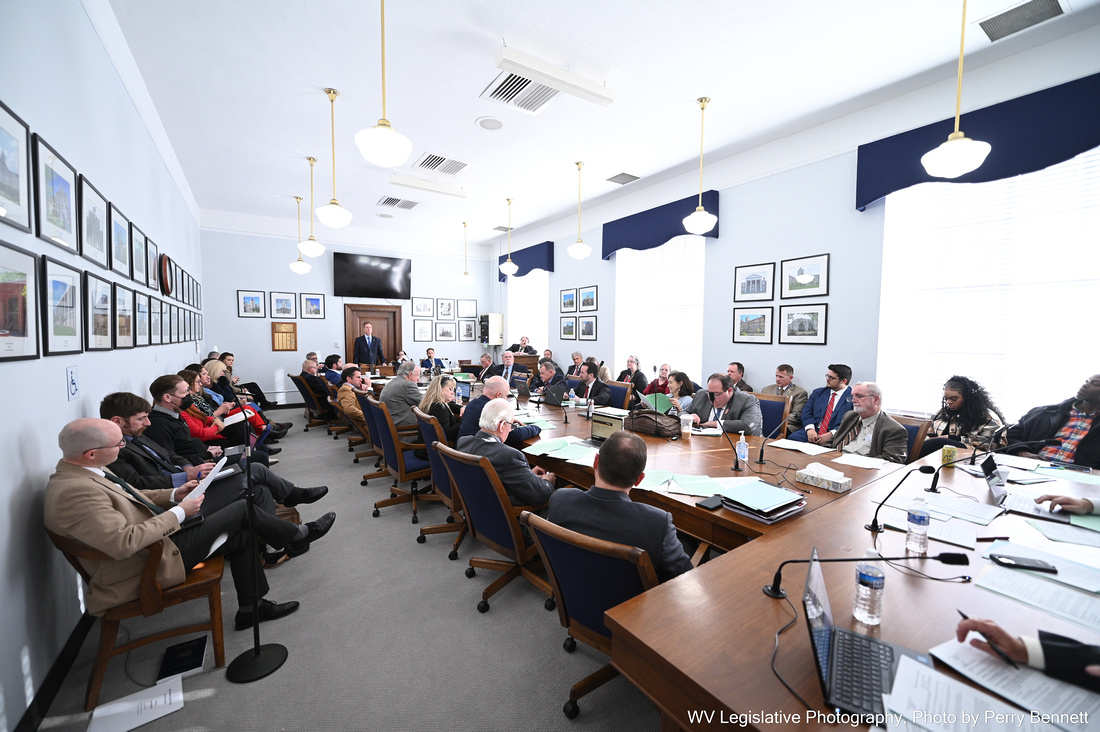As the West Virginia House of Delegates prepared to vote on a bill that would add up to 10 years of supervision for people convicted of certain drug crimes, lawmakers debated whether the bill would help or worsen the state’s substance use crisis.
House Bill 2257 establishes a supervised release penalty of up to 10 years for people found guilty of possession with intent to deliver heroin, methamphetamine or fentanyl.
Bill supporters said Friday that this legislation could result in fewer illegal drugs in West Virginia communities by keeping an eye on the people known to sell them.
“The whole point of extended supervision is to watch someone who has a propensity to have a repeat crime of the same nature,” said the bill’s lead sponsor, Republican Del. Brandon Steele of Raleigh County.
On the other hand, the legislation could have negative consequences for people dealing with substance use disorder themselves, by creating more red tape and requirements for people reentering society after incarceration.
“I’ve heard the word ‘dangerous,’ a lot of people are using that label,” said Del. Joey Garcia, D-Marion. “But the bill, it captures those struggling with addiction.”
The extended supervision described in House Bill 2257 would be in addition to all time already served in a correctional facility.
Steele told the full House of Delegates Friday that he modeled the bill after an existing program that extends supervision for registered sex offenders.
However, after amendments to the bill Thursday, lawmakers agreed to leave discretion up to local judges, allowing them to increase the length of extended supervision, decrease it, or revoke it and send a person back to jail or prison.
Anyone who’s required to enter extended supervision, based on these charges, is allowed to have a hearing with a judge no sooner than 60 days before the supervision is slated to begin.
Judges are allowed in House Bill 2257 to impose a monthly fee of up to $50 to people under extended supervision, to offset costs associated with monitoring them.
Judges also can require that someone on extended supervision stay home during non-working hours, using “telephone or electronic signaling devices” to ensure compliance.
Opposition to the bill garnered bipartisan support Friday.
Del. Chris Pritt, R-Kanawha, said he would be voting against the bill because it creates a “new layer of government.”
“We heard extensive testimony in the judiciary [committee] about all the different programs that they [the Division of Corrections and Rehabilitation] are doing to help prevent recidivism,” Pritt said. “We don’t need a new layer of government. We need to reform our government.”
The House Judiciary committee, which agreed to pass House Bill 2257 onto the full House of Delegates last week, heard hours of testimony from the DCR, the state office of Probation Services, and Kenneth Matthews, a collegiate peer recovery coach who was formerly incarcerated at the Mount Olive Correctional Center.
Before voting on the bill Friday, many delegates referred to Matthews’ testimony to committee members during which Matthews said that he thanks his recovery to programs that connected him to housing and employment — not parole.
Del. Danielle Walker, D-Monongalia, read a letter from Matthews on the House floor. “Do not put another burden on another Kenneth Matthews in this state,” Walker told delegates afterward.
House Judiciary Chair Moore Capito, R-Kanawha, said the bill was a “genuine attempt to make things better.”
“Could we keep somebody from trying heroin for the first time because we got a bigwig drug dealer that we’ve kept our eye on off the street?” Capito said. “Could that happen? Could [this bill] result in less drugs, less poison and toxins in our community? Could that happen as a result of this bill?”
The bill passed 68 to 29 with two people not voting. It now moves onto the West Virginia Senate for consideration.
Emily Allen is a Report for America corps member.
